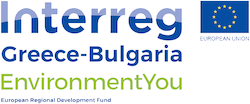Technology transfer is the process of sharing skills, knowledge, technology and production methods between firms, universities, governments and other institutions to make scientific and technological discoveries available to a wide range of users who can then develop and use the technology to create new products, processes, applications, materials, etc.
In short, it is the use of research results and academic knowledge for practical purposes.
There are two main types of technology transfer:
- A commercial transfer in which revenue is generated from the sale or licensing of the invention (industrial property rights) or copyright
- Non-commercial transfer, where information about the invention/innovation is shared without an expected return on investment from the users of the knowledge/innovation
Commercial technology transfer
The main types of commercial technology transfer are:
- Licensing: an agreement under which the owner of a patent, trademark, or other intellectual property grants permission to another company to use the technology it has developed in a particular field for a specified period of time
The licence agreement must include as a minimum:
- Subject matter, territorial scope and duration of the licence
- Rights and obligations of the licensor
- Rights and obligations of the licensee
- Determination of the royalty
- Responsibility
- Termination of contract
The licensee is entitled to generate revenue from the commercialisation of the innovation by paying a periodic royalty to the patent owner (e.g. annually) or by deducting a percentage of the revenue. Licences are:
- Exclusive
- Non-exclusive
- Cross-licences
- Sub-licensing
- Compulsory license (typical mainly for the pharmaceutical industry)
- Collaborative agreement: the owner of the technology participates in its introduction to the market, providing technical support at each stage of the transfer, as well as staff training
- Joint Venture: an agreement entered into between two or more companies for the purpose of carrying out a specific activity - includes mutual assets, management, risks, profit sharing, co-production, services and marketing
- Franchise: an agreement in which one company grants another the right to use its trademark or business model. The buyer of a franchise begins to manufacture and sell the goods according to the seller's specification. Usually, the owner of a trademark also shares its expertise in managing and operating the franchised product/technology
- Strategic collaboration: an agreement between two or more large companies to use the specific skills of each in developing new innovative technologies. It can take the form of joint laboratories, research programmes, production and promotion of a new product
- Turnkey agreement: the company enters into a contract with only one supplier, who takes full responsibility for the implementation of the project; barring force majeure, the project will have a fixed price; the supplier guarantees the efficiency and effectiveness of the technology
- Management contract: technology transfer with the assistance of the company that developed the innovation
Non-commercial technology transfer
In the case of non-commercial technology transfer, any person is entitled to use the protected intellectual property without being entitled to sell the innovations derived from it or to generate a profit from its use.
Types of non-commercial forms of technology transfer:
- Academic mobility
- Research specialisations and exchange missions
- Articles in scientific journals
- Conference papers
- Publication of literature - scientific, educational, patents, standards
European initiatives to support knowledge and technology transfer
Joint Research Centre (JRC) is the European Commission's science and knowledge service that recruits scientists to carry out research to provide independent scientific advice and support for EU policy. The JRC's main focus areas are:
- Agriculture and food security
- Economic and monetary union
- Energy and transport
- Environment and climate change
- Health and consumer protection
- Information Society
- Innovation and growth
- Nuclear safety and security
- Safety and security
- Standards
European Institute of Innovation and Technology (EIT) is located in Budapest, Hungary. It is an EU body set up in 2008 to strengthen Europe's capacity for innovation. The EIT is an integral part of Horizon Europethe new EU Framework Programme for Research and Innovation. The Institute carries out a wide range of innovation and entrepreneurship activities: educational courses that combine technical and entrepreneurial skills, customised services to create and accelerate businesses and innovative research projects.
Enterprise Europe Network is Europe's largest information and advisory network to help small and medium-sized enterprises develop their innovation and technology potential and improve their awareness of European Union policies. The network operates in more than 60 countries. Experts also help SMEs to market themselves internationally. The services offered by the network are:
- Internationalisation
- Access to funding for research projects
- Introduction of new technologies
- Intellectual property
- Innovation Management
The European Commission supports the development of several European technology platformswhich in turn help companies and organisations in certain areas to be competitive. They bring together stakeholders to set medium- and long-term research and technological development goals and set benchmarks for achieving them.
The leading platforms are:
- Food for life
- Plants for the future
- Forest sector
- Sustainable chemistry
- Biofuels
- Sustainable production
- European agriculture
- Rearing and reproduction of farm animals
- European Fisheries Technology Platform

